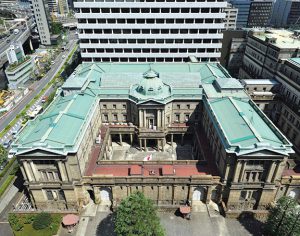Bloomberg
The Bank of Japan (BOJ) is on course to buy the smallest amount of local equity this year since former Prime Minister Shinzo Abe took office, a far cry from last year’s record haul during the height of pandemic.
The BOJ purchased a total of 873.4 billion yen ($7.6 billion) in exchange-traded funds through December 27, according to data compiled by Bloomberg. That’s a fraction of the 7.1 trillion yen it bought last year to support the market and would be the smallest annual purchase since 2012.
The drop was officially signalled in March when the BOJ scrapped its basic target for 6 trillion yen in annual ETF buys, though it pledged to continue to step in if sentiment worsened. The central bank’s buying had averaged nearly 4 trillion yen per year since Governor Haruhiko Kuroda launched the ambitious program in 2013 to boost inflation, making the BOJ the biggest holder of the nation’s equities.
So far, the market seems to have shrugged off the BOJ’s absence. The Nikkei 225 Stock Average reached its highest level in more than three decades in September, tracking a rally in global stocks on economic re-openings. While it has erased some of those gains, the blue-chip gauge is still up about 6% this year and 75% from its March 2020 low.
Investors will now likely focus their attention on what the BOJ will do with the 50 trillion yen of ETFs it has accumulated over the years, according to NLI Research Institute’s Shingo Ide. The slowdown in purchases shows the BOJ is conscious of potential side effects, he added.
“I do not think we will see a day where the Bank of Japan actually sells equities,†said Jesper Koll, expert director at Monex Group. But, “the energy, or the degree with which the price-keeping operation is being operated has definitely been toned down.â€
 The Gulf Time Newspaper One of the finest business newspapers in the UAE brought to you by our professional writers and editors.
The Gulf Time Newspaper One of the finest business newspapers in the UAE brought to you by our professional writers and editors.
